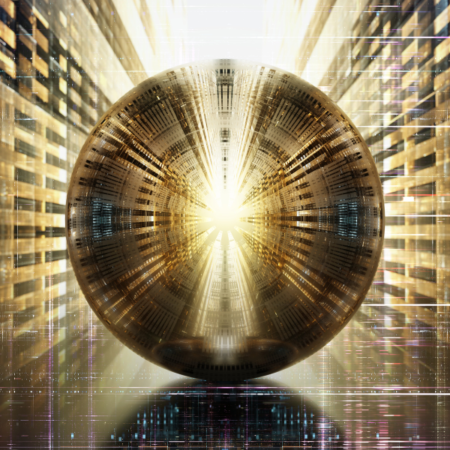Quantum Computing Is the Future. But What Is It?

Don’t freak out, but IT is approaching crisis point. We’re not being dramatic; it’s true. Information technology will be a victim of its own success unless the world’s leading tech geeks can crack quantum computing, which we reckon they can. If society continues to increasingly rely on computers, everything will go BANG in around 2040. We can’t keep making computers smaller and more powerful unless we find a different way of doing it.
Computer scientists have been chasing the quantum computing dream for decades. However, to most people, the concept remains an enigma. We want to change that, so here’s a stab at explaining the IT conundrum and the quantum solution in good old plain English.
The problem with classical computing
Computer technology has advanced to achieve some incredible feats. Still, we’ll be honest with you, the stuff that goes on under the bonnet is actually pretty basic. In fact, today’s computers are two-trick ponies:
Trick 1: They can store numbers in memory as ‘bits’.
Trick 2: They can process stored numbers using simple mathematical operations, such as add and subtract.
That’s it. Computers are really just calculators that follow a prearranged set of instructions called a program. They string these simple operations together to perform complex functions, and this is what’s known in the trade as an algorithm.
A computer performs its tricks using microscopic binary switches called transistors. Just like a light switch, a transistor can only ever be on or off. When it’s on, it stores a 1, and when it’s off, it stores a 0. Computers calculate by connecting transistors together in a circuit called a logic gate. Algorithms are essentially an electric circuit made of multiple logic gates with the output from one gate providing the input for the next gate.
Here’s the issue. For computers to continue solving increasingly complex problems, they need more complex algorithms, which means storing more bits via more transistors and more logic paths. The more steps an algorithm requires, the longer the process takes. Computers as they exist, can’t supply the amount of power and time needed to solve the most complex problems that we want to challenge them with in the future. In the IT world, such issues are known as intractable problems.
Computer scientists have made huge leaps in diminishing the number of intractable problems by shrinking transistors. The first transistors back in 1947 were the size of your thumb, and now we have microchips the size of your fingernail that contain billions of atom-sized transistors. The advances have been tremendous. But the laws of physics have ground transistor advancement to a halt. They are as small as scientists can make them.
What is quantum computing, and why is it the future of IT?
We’ll keep this simple, but it will still blow your mind. It does ours, anyway.
Quantum computing uses the principle of quantum mechanics; a theory which works an atomic and subatomic level where everything gets a little bit weird. The rules of physics as we know them don’t apply here. In the words of the great 20th-century physicist Richard P. Feynman, “Things on a very small scale behave like nothing you have any direct experience about… or like anything that you have ever seen.” (Six Easy Pieces, p116.). To find out just how freaky quantum mechanics can get, take a look at the Schrödinger’s cat paradox that proposes a cat may be simultaneously both alive and dead. ????
At the most basic level, quantum computing is capable of storing information in ‘units’ that hold far more information that its classical computing equivalent. It does this using a concept called superposition. Whereas a conventional computer stores everything as a 1 or a 0, the quantum ‘qubit’ (the equivalent of a ‘bit) can store:
- 0
- 1
- Both 0 and 1
- An infinite number of values in-between 0 and 1
- Multiple values simultaneously (dead/alive cats)
This changes everything. If quantum computers ever come into existence, they will be able to process multiple paths of information simultaneously and at superfast speeds. The potential for eradicating intractable problems and developing computers with exceptional security capabilities would become a reality.
But alas, at the moment, it’s all just theory. Scientists have not yet figured out how to create qubits without them having a hissy fit at the slightest environmental change. Neither have they identified a material with which to make quantum computing chips successfully. It’s a work in progress, but in 2019, Google got a step closer with their quantum processor, Sycamore. The dream is on its way to becoming a reality, albeit slowly. Sorry guys, Santa probably won’t be bringing you your first quantum computer this Christmas or next.





